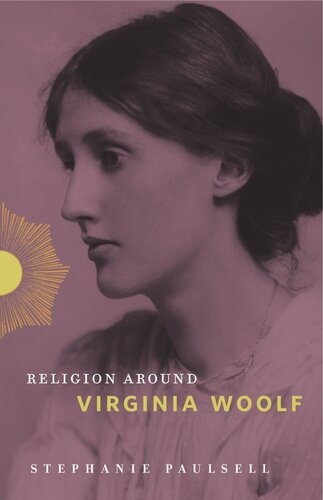

Most ebook files are in PDF format, so you can easily read them using various software such as Foxit Reader or directly on the Google Chrome browser.
Some ebook files are released by publishers in other formats such as .awz, .mobi, .epub, .fb2, etc. You may need to install specific software to read these formats on mobile/PC, such as Calibre.
Please read the tutorial at this link: https://ebookbell.com/faq
We offer FREE conversion to the popular formats you request; however, this may take some time. Therefore, right after payment, please email us, and we will try to provide the service as quickly as possible.
For some exceptional file formats or broken links (if any), please refrain from opening any disputes. Instead, email us first, and we will try to assist within a maximum of 6 hours.
EbookBell Team

4.3
28 reviewsVirginia Woolf was not a religious person in any traditional sense, yet she lived and worked in an environment rich with religious thought, imagination, and debate. From her agnostic parents to her evangelical grandparents, an aunt who was a Quaker theologian, and her friendship with T. S. Eliot, Woolf’s personal circle was filled with atheists, agnostics, religious scholars, and Christian converts. In this book, Stephanie Paulsell considers how the religious milieu that Woolf inhabited shaped her writing in unexpected and innovative ways.
Beginning with the religious forms and ideas that Woolf encountered in her family, friendships, travels, and reading, Paulsell explores the religious contexts of Woolf’s life. She shows that Woolf engaged with religion in many ways, by studying, reading, talking and debating, following controversies, and thinking about the relationship between religion and her own work. Paulsell examines the ideas about God that hover around Woolf’s writings and in the minds of her characters. She also considers how Woolf, drawing from religious language and themes in her novels and in her reflections on the practices of reading and writing, created a literature that did, and continues to do, a particular kind of religious work.
A thought-provoking contribution to the literature on Woolf and religion, this book highlights Woolf’s relevance to our post-secular age. In addition to fans of Woolf, scholars and general readers interested in religious and literary studies will especially enjoy Paulsell’s well-researched narrative.